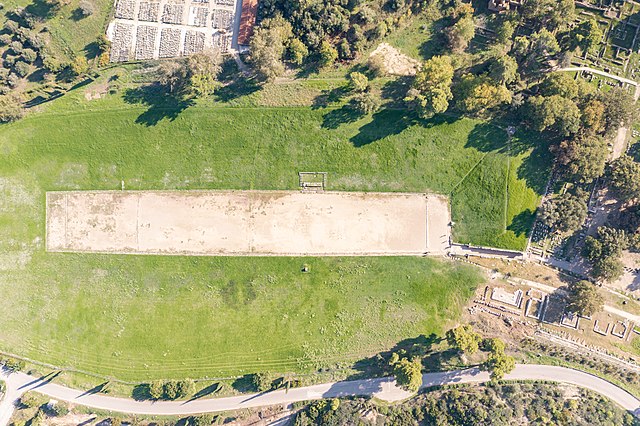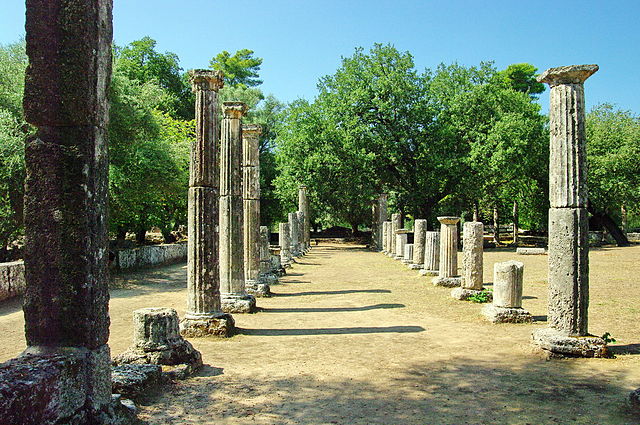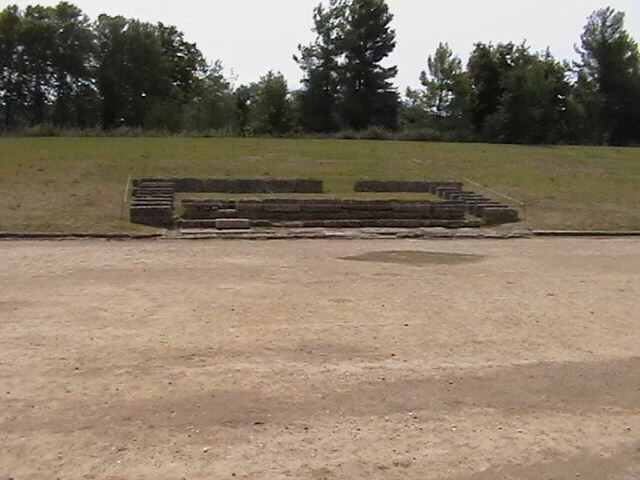An olympiad is a period of four years, particularly those associated with the ancient and modern Olympic Games.
Stadium at ancient Olympia
A relief of the Greek Olympiad
The ancient Olympic Games were a series of athletic competitions among representatives of city-states and were one of the Panhellenic Games of Ancient Greece. They were held at the Panhellenic religious sanctuary of Olympia, in honor of Zeus, and the Greeks gave them a mythological origin. The originating Olympic Games are traditionally dated to 776 BC. The games were held every four years, or Olympiad, which became a unit of time in historical chronologies. They continued to be celebrated when Greece came under Roman rule in the 2nd century BC. Their last recorded celebration was in AD 393, under the emperor Theodosius I, but archaeological evidence indicates that some games were still held after this date. The games likely came to an end under Theodosius II, possibly in connection with a fire that burned down the temple of the Olympian Zeus during his reign.
The palaestra of Olympia, a place devoted to the training of wrestlers and other athletes
The exedra reserved for the judges at Olympia on the south embankment of the stadium. Today, this is where the Olympic flame is passed on to the first torchbearer of the upcoming Olympic Games.
This model shows the site of Olympia, home of the ancient Olympic Games, as it looked around 100 BC. British Museum
An artist's impression of ancient Olympia






